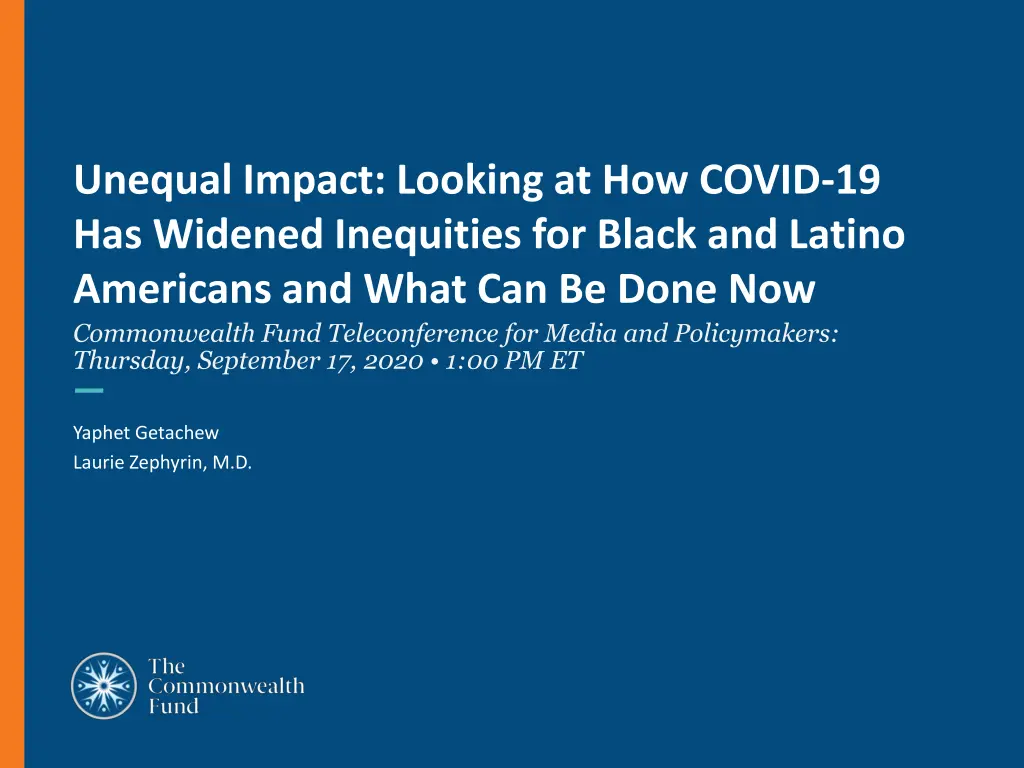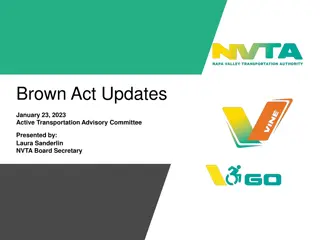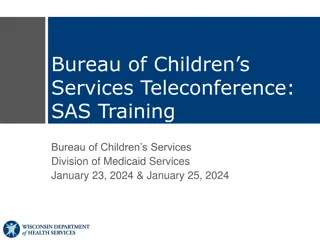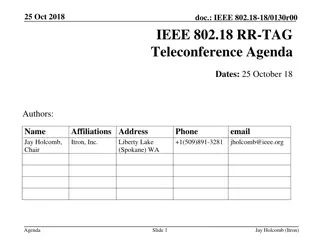
Widening Inequities for Black and Latino Americans Due to COVID-19
Explore the disproportionate impact of COVID-19 on Black and Latino Americans, highlighting economic hardships, mental health concerns, and public opinion on government responses. Learn about the disparities revealed by the Commonwealth Fund's survey and potential actions to address these inequities.
Download Presentation

Please find below an Image/Link to download the presentation.
The content on the website is provided AS IS for your information and personal use only. It may not be sold, licensed, or shared on other websites without obtaining consent from the author. If you encounter any issues during the download, it is possible that the publisher has removed the file from their server.
You are allowed to download the files provided on this website for personal or commercial use, subject to the condition that they are used lawfully. All files are the property of their respective owners.
The content on the website is provided AS IS for your information and personal use only. It may not be sold, licensed, or shared on other websites without obtaining consent from the author.
E N D
Presentation Transcript
Unequal Impact: Looking at How COVID-19 Has Widened Inequities for Black and Latino Americans and What Can Be Done Now Commonwealth Fund Teleconference for Media and Policymakers: Thursday, September 17, 2020 1:00 PM ET Yaphet Getachew Laurie Zephyrin, M.D.
Many Americans are facing substantial economic hardship during the pandemic. Latino and Black people experience these hardships at significantly higher rates than white people. Percent of respondents who reported the following had happened because of the COVID-19 pandemic 55^ 49^ 44^ 38^ 31^ 26^ 21 21^ 16 14^ 10 8 Been unable to pay for basic necessities like food, heat, or rent Used up all or most of their savings* White (non-Latino) Borrowed money or taken out a loan Black (non-Latino) Suffered from any economic consequence** Latino ^ Difference is statistically significant compared to White (non-Latino) respondents at p 0.05. * Excludes those who reported never having had savings. ** Suffered from any economic consequence identifies any respondents who said yes to at least one of the other questions on economic consequences (been unable to pay for necessities like food, heat or rent; used up all or most of savings; borrowed money or taken out a loan). Data: Commonwealth Fund International Health Policy COVID-19 Supplement Survey, 2020. Yaphet Getachew et al., Beyond the Case Count: The Wide-Ranging Disparities of COVID-19 in the United States (Commonwealth Fund, Sept. 2020).
Latino and Black people, women, and people with lower incomes are most at risk of mental health concerns because of the pandemic. Percent of respondents who reported experiencing stress, anxiety, or great sadness that they found difficult to cope with on their own since the COVID-19 pandemic began 29 White (non-Latino) 39 Black (non-Latino) 40^ Latino 26 Men 39^ Women 26 Above-average income 44^ Below-average income ^ Difference is statistically significant at p 0.05. Notes: Black (non-Latino) and Latino respondents were compared to white (non-Latino) respondents. Female respondents were compared to male respondents. Respondents from households with below-average income were compared to those from households with above-average income. Respondents indicated whether their income was either below or above the annual U.S. household average of $62,000. Data: Commonwealth Fund International Health Policy COVID-19 Supplement Survey, 2020. Yaphet Getachew et al., Beyond the Case Count: The Wide-Ranging Disparities of COVID-19 in the United States (Commonwealth Fund, Sept. 2020).
Americans are less likely than people in other countries to have a positive opinion of the government s pandemic response. Percent of adults saying leaders have done a very good or good job in handling the coronavirus pandemic in their country: State, regional, or local government leaders* Central government, named president, or prime minister** 95 94 89 80 76 74 73 68 67 67 58 57 53 51 49 35 33 Australia Canada France Germany Netherlands New Zealand Sweden U.K. U.S. *Canada: provincial or territorial leaders ; France: public powers ; Netherlands: your provincial government leaders and municipalities ; New Zealand: your government leaders ; Norway: your regional health authorities or municipalities ; U.K.: local NHS and council leaders; Australia and U.S.: your state and local government leaders. Differences between U.S. and Australia, Canada, France, Germany, the Netherlands, New Zealand, and the U.K. were statistically significant at the p<0.05 level. **Australia: Prime Minister Scott Morrison; Canada: Prime Minister Justin Trudeau; Germany: Prime Minister Angela Merkel; Netherlands: Prime Minister Mark Rutte; New Zealand: Minister Jacinda Ardern; Sweden: the national government; U.K.: the U.K. government; U.S.: President Donald Trump. Differences between the U.S. and all other surveyed countries were statistically significant at the p<0.05 level. Notes: Questions not asked in Norway. Central government/named president/prime minister question not asked in France. Question wording: How good of a job has/have the following done in handling the coronavirus pandemic ? Other response categories were acceptable, poor and very poor. Source: Reginald D. Williams II et al., Do Americans Face Greater Mental Health and Economic Consequences from COVID-19? Comparing the U.S. with Other High-Income Countries (Commonwealth Fund, August 2020).
Fewer than half of white, Black, and Latino Americans have a positive opinion of the president s pandemic response. Percent of respondents who reported the following leaders have done a good or very good job of handling the COVID-19 pandemic in the United States 86 80 79 54 53 41 38 35^ 10^ Hospitals, doctors, and nurses State and local government President Donald Trump White (non-Latino) Black (non-Latino) Latino Note: Other response categories acceptable, poor, and very poor are not shown. ^ Difference is statistically significant compared to white (non-Latino) respondents at p 0.05. Data: Commonwealth Fund International Health Policy COVID-19 Supplement Survey, 2020. Yaphet Getachew et al., Beyond the Case Count: The Wide-Ranging Disparities of COVID-19 in the United States (Commonwealth Fund, Sept. 2020).
IMPLICATIONS: What does this mean for people and policy in the U.S.? Black and Latino communities have been the hardest hit. Economic hardship and mental health are interrelated. Trust is integral to successful policy. Intersectionality is a critical lens. Low approval ratings of government officials among Americans may speak to issues with trust. This needs to be addressed for future policies and initiatives to be successful. Communities in the U.S. face various barriers that lead to disparities. For many groups, such as women of color, these are compounding and intersectional. Communities of color, are the most impacted. This highlightslongstanding systemic inequities and system failures. Resources can intentionally target these communities. Practical policy changes make a difference in people s lives affecting their finances and mental health but so far, they have not effectively targeted those who need it most. Yaphet Getachew et al., Beyond the Case Count: The Wide-Ranging Disparities of COVID-19 in the United States (Commonwealth Fund, Sept. 2020).






















